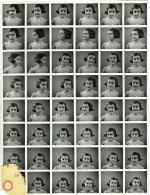
Research Report: 'Book About Betrayal of Anne Frank Based on Assumptions and Lack of Historical Knowledge'
Doing justice to the past
Immediately after the publication of the book last January, the research and conclusions of the cold case team were widely criticized, among others by NIOD researchers. In their report, The Betrayal of Anne Frank: A Refutation. Critical Analysis of the Argumentation and Use of Historical Sources, a group of researchers now present a detailed analysis of the argumentation, the use of historical sources, and the conclusion of the cold case team.
The researchers conclude that there is no convincing evidence backing up the claim that Arnold van den Bergh betrayed Anne Frank. But they also oppose the cold case team's approach to a complex history. The debate about the Holocaust and the position of Jews during World War II, they argue, must be approached ‘with respect for the historical context and with nuance, rather than from an overly complacent modern perspective.’
‘For only then’, they write, ‘can we do justice to the past and also do justice to the people of the past. Including the notary Arnold van den Berg.’
Assumptions and lack of historical knowledge
In their report, the researchers endorse the criticisms made by several historians after publication of the book. According to them, the argumentation used in the book to eventually claim Van den Bergh betrayed the Frank family is incorrect. The cold case team, they write, makes many assumptions and then builds arguments on those assumptions. This makes the whole thing ‘a shaky house of cards, because if any single step turns out to be wrong, the cards above also collapse’.
The researchers also speak of 'numerous erroneous interpretations' that stem from the fact that the cold case team ‘poorly understood' the historical context of the war and the post-war period. For example, the cold case team did not take into account the gossip and accusations that circulated immediately after the war, and they did not analyze their most important sources critically enough, or even misread or misinterpreted them.
The letter
The most important document that the cold case team put forward as evidence for their accusation against Arnold van den Bergh was a letter that Anne Frank's father, Otoo Frank, received after the war. A retyped copy of the letter, rather than the original letter, was found in the archive of a detective who investigated Anne Frank's betrayal in the 1960s. It reads:
Your hideout in Amsterdam was reported at the time to the Jüdische Auswanderung [Jewish Emigration] in Amsterdam, Euterpestraat, by A. van den Bergh, a resident at the time at Vondelpark, O. Nassaulaan. At the J.A. was a whole list of addresses he submitted.
According to the researchers, it is unclear when the original letter was written and when it would have been delivered to Otto Frank. But more importantly, they argue, the cold case team neglects to understand the historical context of such a letter. 'Immediately after the war, the place was swarming with accusations,' the researchers write, ‘everywhere, people were trying to cover their tracks or settle scores.’ An anonymous letter accusing someone, they conclude, is ‘in short, very weak evidence’.
After the presentation of the report, the Dutch publisher of the book announced that they will pull the book.
